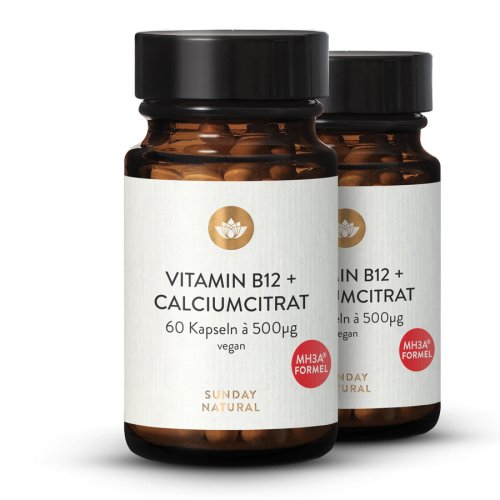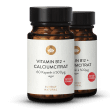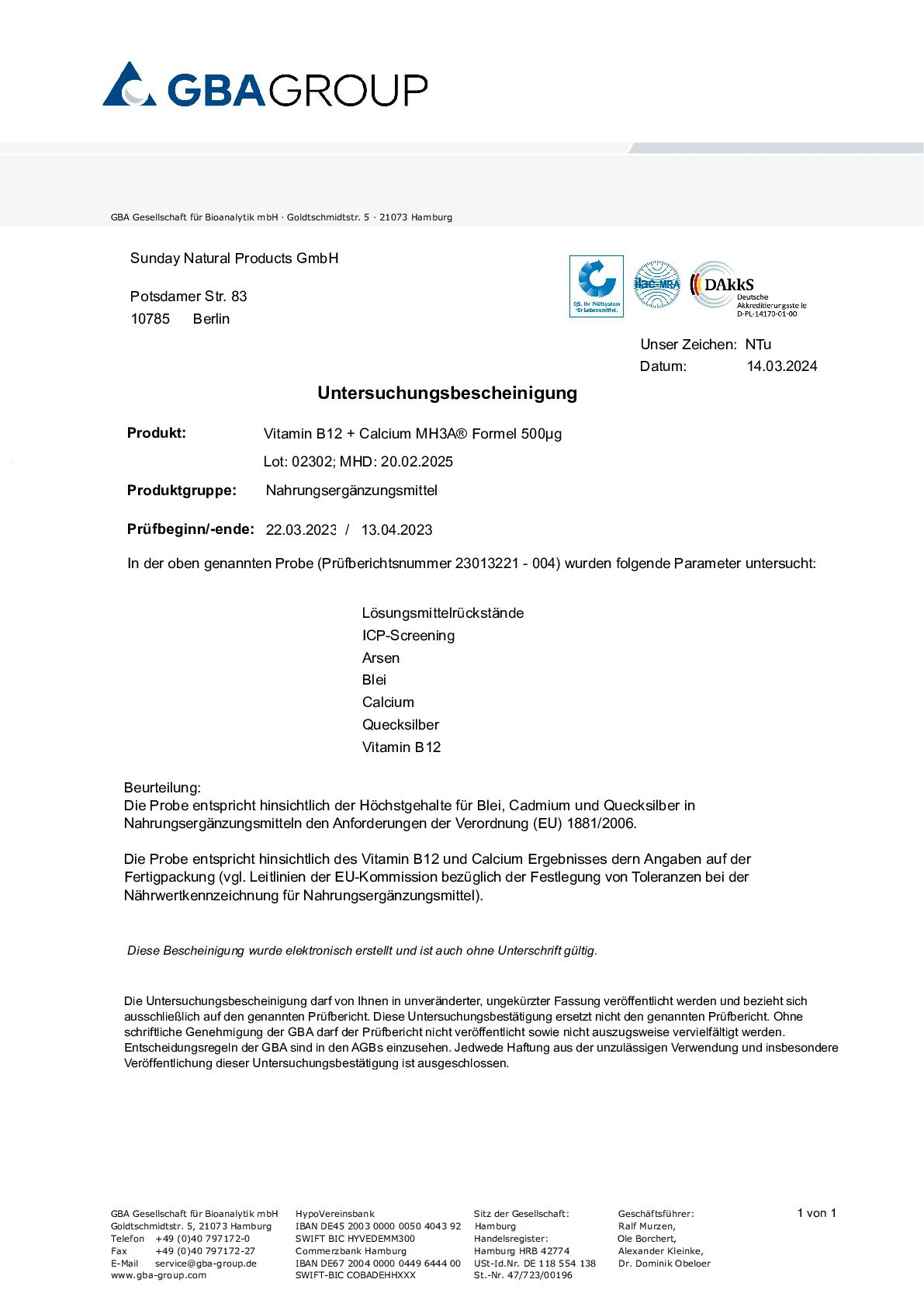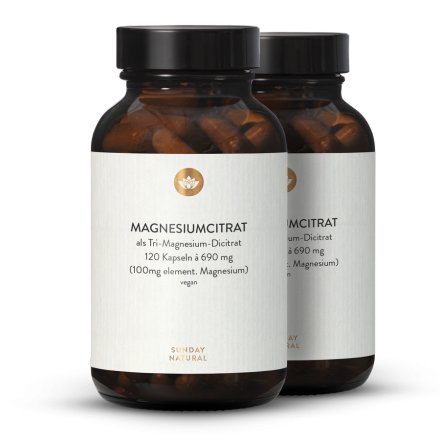Vitamin B12 (Cobalamin)
Vitamin B12 performs a variety of important functions in the body. Among other things, it can help reduce tiredness and fatigue and maintain normal energy metabolism. It contributes to normal functioning of the psyche and immune and nervous systems, it supports the formation of red blood cells and is conducive to normal homocysteine metabolism. Additionally, the body needs vitamin B12 for cell division. Vitamin B12 acts in the body as a so-called coenzyme. This means it us required for certain enzymes in our body to perform their tasks. The related reactions are directly dependent on a sufficient supply of vitamin B12 and cannot take place without the vitamin.
Vitamin B12 MH3A® Formula
Vitamin B12 exists in different chemical forms, each with different functions within the body. The natural forms of vitamin B12 that can be readily absorbed by the body are described as "bioactive coenzymes". Synthetic forms of Vitamin B12 such as cyanocobalamin must be first converted into a natural form by the body in order to be effective, which is why we use naturally bioactive forms of Vitamin B12 that the body can directly use.
Methylcobalamin and adenosylcobalamin are the bioactive coenzyme forms of vitamin B12. The body requires them for many different metabolic processes. Methylcobalamin plays a role in the methylation cycle within the cell plasma, thus influencing various bodily processes from blood cell synthesis to psyche to the functioning of the nervous system. Adenosylcobalamin, in contrast, takes effect in the mitochondria, the "powerhouse" of the cell. There it plays a role in the citrate cycle, the central metabolic cycle for producing energy. Hydroxocobalamin is another natural form of vitamin B12 that can be found in many food products. A large quantity of vitamin B12 found in the blood exists in the form of hydroxocobalamin, which binds particularly well to vitamin B12 transport molecules and can thus be easily retained in the body. It is also the B12 vitamin with the best depository properties. Hydroxocobalamin can be easily converted by the body into the active coenzyme forms as needed.
Health Benefits of Vitamin B12 According to the European Food Safety Authority (EFSA)
Vitamin B12 contributes to:
- Normal energy-yielding metabolism
- Normal functioning of the nervous system
- Normal homocysteine metabolism
- Normal mental function
- Normal formation of red blood cells
- Normal function of the immune system
- The reduction of tiredness and fatigue
and vitamin B12 has a role in the process of cell division.
Health Benefits of Calcium According to the European Food Safety Authority (EFSA)
Calcium:
- Contributes to normal blood clotting
- Contributes to normal energy metabolism
- Contributes to normal muscle function
- Contributes to normal signal transmission between nerve cells
- Contributes to normal function of digestive enzymes
- Has a function in cell division and specialisation
- Is needed for the maintenance of normal bones and teeth




























